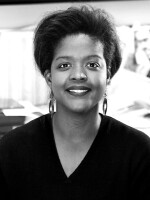DEBBIE ELLIOTT, Host:
But Gwen Thompkins reports that Darfur casts a long and ugly shadow over Sudan's future.
GWEN THOMPKINS: Khartoum has some of the best real estate in all of Africa. This capital city is located at the confluence of the Blue and White Nile Rivers - rivers that have carried sultans and pharaohs, treasure seekers and explorers, soldiers and slaves from the beginning of time. The Blue Nile moves fast through the city, careening against the riverbanks as if it's already late for something. The White Nile ambles like a well-dressed older man who knows he's worth the wait. John Coltrane meets Duke Ellington.
(SOUNDBITE OF PEOPLE TALKING)
THOMPKINS: Safwat Fanus(ph) says he knows what they're talking about almost before they opened their mouths. Fanus is a political scientist and a member of Sudan's national unity government. He says, put any two Sudanese together anywhere and the subject is always the same.
SAFWAT FANUS: We don't talk about weather. We don't talk - people are not - they are not interested in sports or in cultural things, they talk politics. And therefore, they know what is going on, okay. They are worried about what is going on and if you just go outside and ask any Sudanese about the future, the typical answer will - and you will get, the future is ambiguous. Okay? People are aware that the country is at the cross point down - at the turning point.
THOMPKINS: Not for nothing as Sudan the largest nation in Africa. It has international borders with nine neighboring countries, which makes the place right for political intrigue. But Khartoum itself is surrounded by trouble within national borders. In government, the civil service and the military - the top jobs are occupied by people from Khartoum and other central locations in Sudan; and those people are overwhelmingly Arab. Others on the periphery are marginalized - politically and economically. That means there are an awful lot of angry people facing Khartoum from every direction.
FANUS: A federal system has been put in place whereby power and wealth is supposed to move from the center to the state level. Okay? But again, this is not a smooth process.
THOMPKINS: Non-signatories to the deal, both black and Arab, are reportedly splintering and the fighting continues. Khartoum has started losing business because of the situation as major companies like Siemens, Swiss ABB, and Rolls Royce have announced plans to leave. But Khartoum has also stymied the United Nation's effort to mount a mixed international force to keep the peace in Darfur.
ELSAMANI ELWASILA ELSAMANI: At the and of the day, the peace will not be sustained by troops. It is going to be sustained by a political agreement, by the parties of the conflict.
THOMPKINS: Elsamani Elwasila Elsamani is the foreign minister of the Central Government of Sudan. He says current sanctions and the U.S. and British threat of more sanctions will ultimately ensure more instability in Sudan.
ELWASILA ELSAMANI: The sanctions definitely will have an effect affecting the development in the south, it will affect the development in Darfur, it will affect the financial capability of the government to address the cause and the roots of the issue. All these issues of the Sudan and these problems and crisis are based on the lack of development. And that is what we need.
THOMPKINS: But for far to many people in Khartoum and central Sudan, the situation in Darfur and the path toward a resolution to the crisis are purely academic discussions. Radhia Achouri is spokesperson for the United Nations' mission in Sudan. She questions whether today's Khartoum has a real understanding of the region it governs.
RADHIA ACHOURI: People in Khartoum never, never experienced war. They don't know what it is. I swear these people don't know what it is. They talk about it like, for instance, you and I - not in our official capacity - would be sitting somewhere in a coffee shop and we are discussing, for instance, the situation in, say, Latin America. Just like that intellectual talk. Most people here don't even know what Darfur looks like.
THOMPKINS: Gwen Thompkins, NPR News, Khartoum. Transcript provided by NPR, Copyright NPR.






